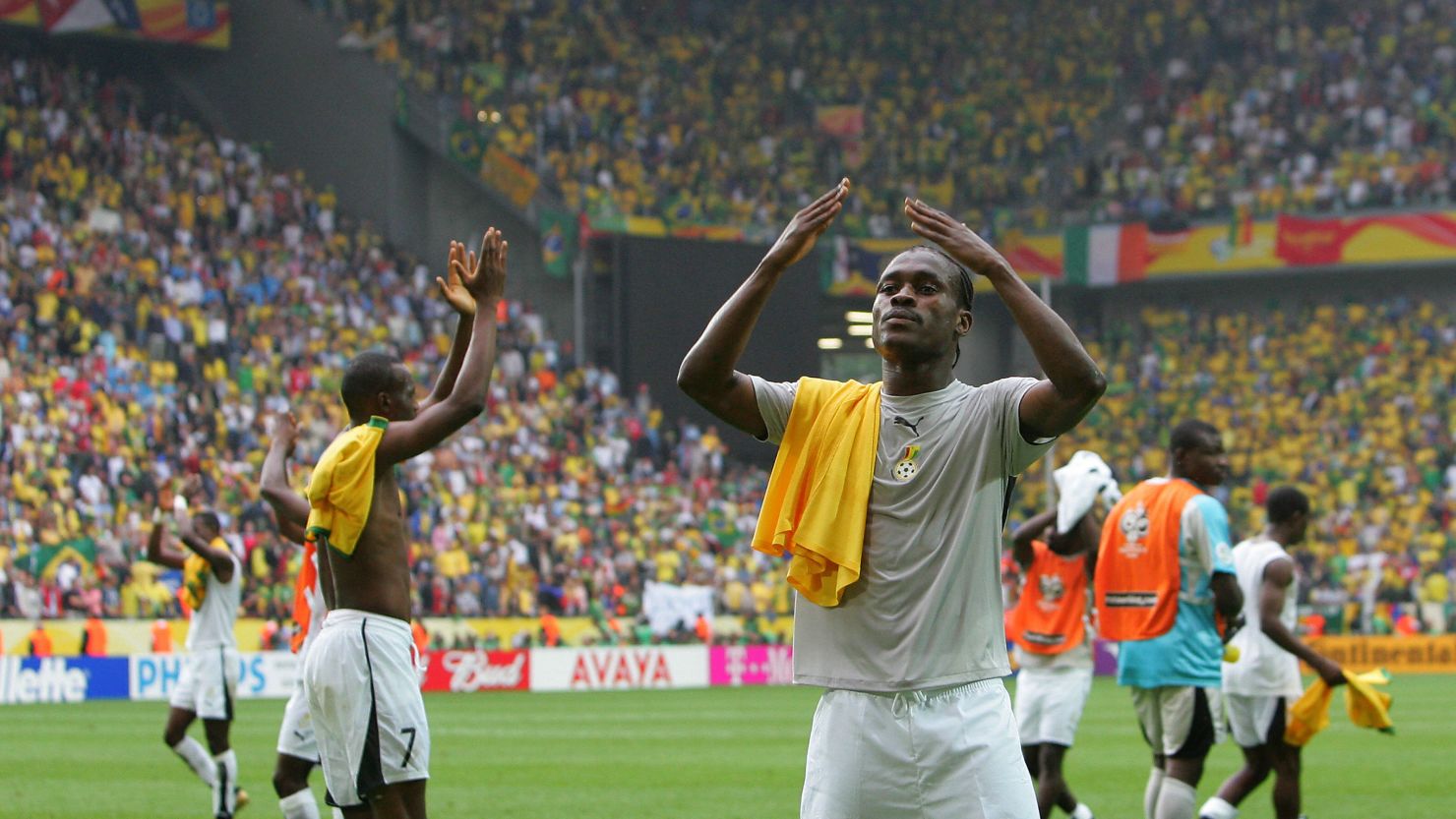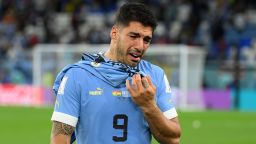“Somebody said that football’s a matter of life and death to you; I said ‘listen, it’s more important than that.’”
One of the most oft-cited – and misquoted – lines in the sport, legendary Liverpool manager Bill Shankly’s iconic words were spoken tongue-in-cheek. Yet for former Ghana star Derek Boateng, they hold a personal truth.
A sprawling 18-year career saw the midfielder represent his national team at two World Cups and face off against Lionel Messi and Cristiano Ronaldo in Spain, one of eight countries where he played club football. They are the kinds of experiences aspiring footballers dream of, but for a young Boateng growing up in Accra, they were dreams that seemed a million miles away.
Boateng and his three siblings were raised by their single mother in one of the poorest districts of the Ghanaian capital, and football quickly became an escape.
“Football saved my life, because without football I don’t know where I would be or what I would be doing,” he told CNN.
“There’s a lot of places that we all go and just enjoy ourselves, but the only place that I go that I feel free and feel at peace is a football field.”
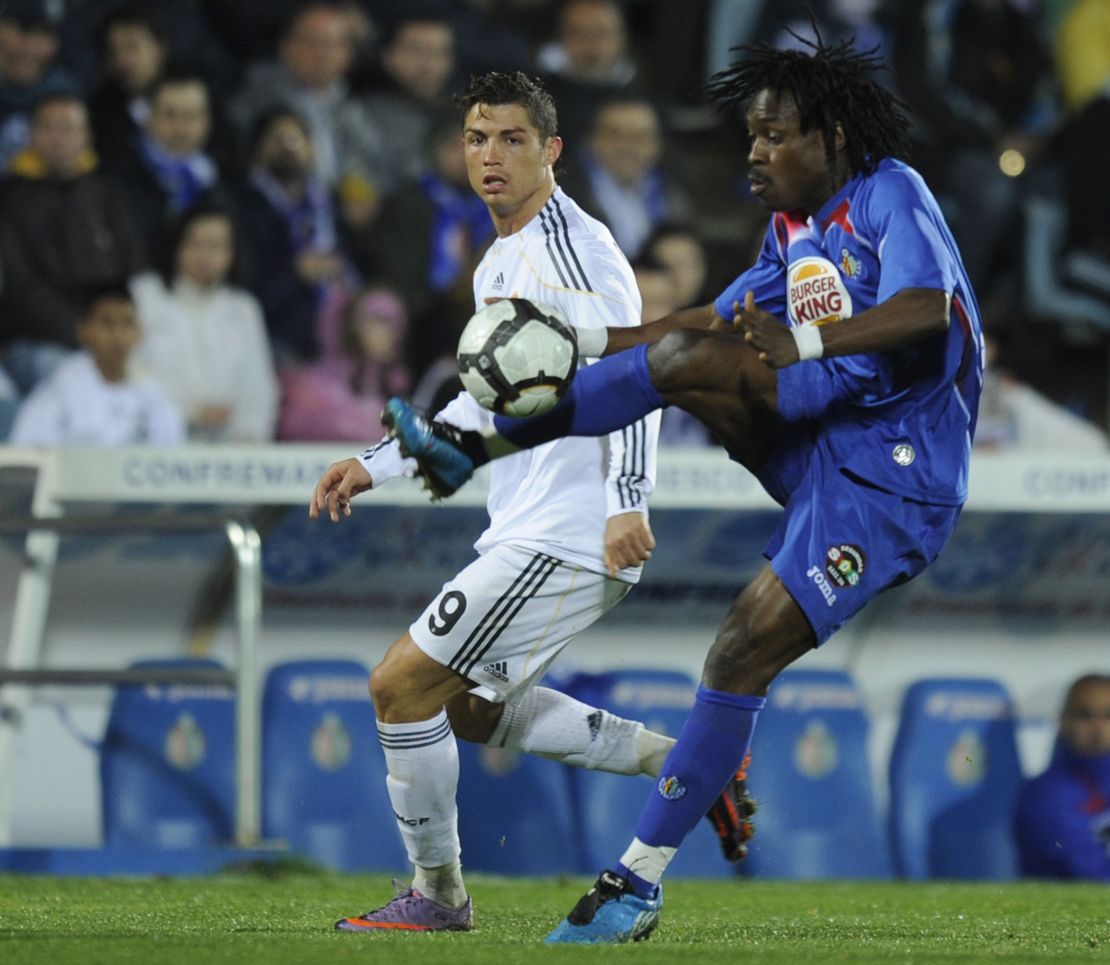
Footsteps
After calling time on his playing career in 2017, Boateng dedicated himself to helping others from similar backgrounds reach the same heights he did by signing on as a scout with the Right to Dream (RTD) Academy.
Founded in 1999 in Boateng’s home city of Accra by Manchester United’s former head African scout Tom Vernon, the program offers scholarships to talented children, with a focus on education and football. As well as a fully residential international school in the Ghanaian capital, RTD also operates in Denmark and the United States, with plans for a new residential academy in Egypt.
Boateng travels around Ghana, as well as to the Ivory Coast and Egypt, to scout the best young talents to bring to the academy. Given his own story, the trips often strike a personal chord.
“I see a lot of things that I’ve been through before – lot of poverty, a lot of hard places – I see myself in there,” Boateng said.
“Especially after going to some of the students’ houses, see where they’re coming from, see where they’re living and how they live – it’s really, really tough. I always cry inside and it’s really, really tough for me but I have to do what I have to do.
“It gives me more energy, more power to be on the road and scout. I don’t care where this will take me. If I have to go to Iraq to go and scout, I will go. If I have to sleep in the car to scout, I’ll do it, because the only thing I know in my heart is that I’m going to change somebody’s life.”
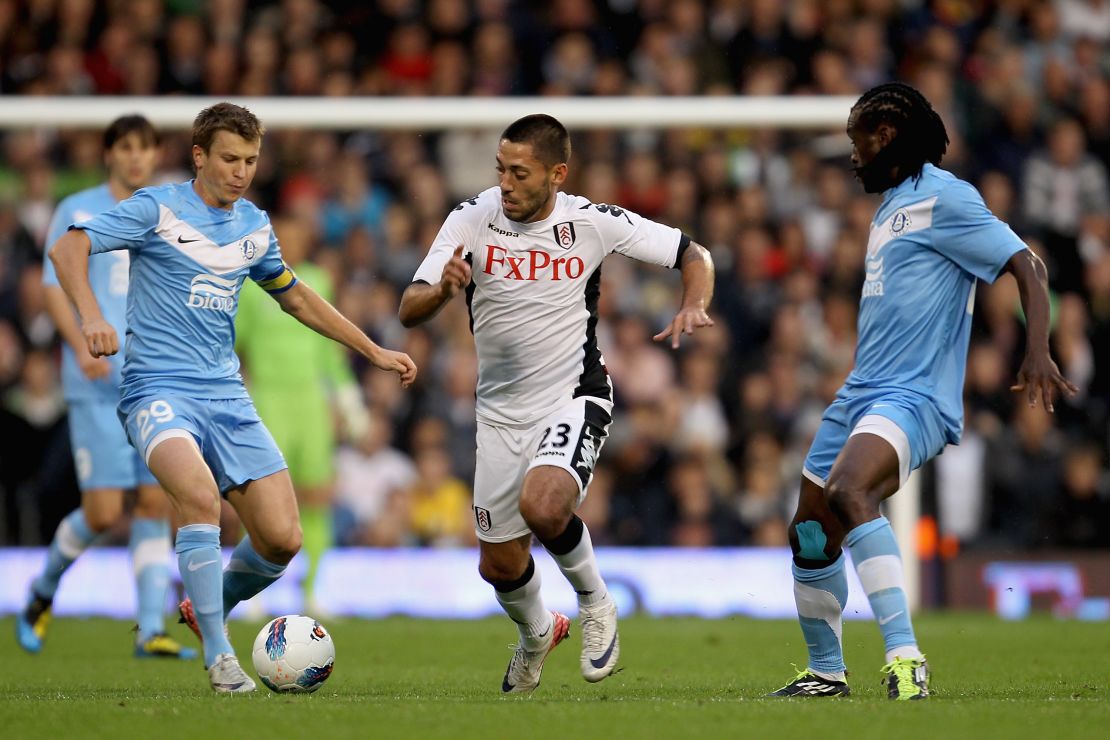
According to RTD’s website, 61 of the 144 students to have graduated from the program have gone on to play professional football, with 14 representing their country’s national teams.
One of these players is Accra-born Muhammed Kudus, a 22-year-old midfielder attracting the attention of some of Europe’s biggest clubs with his form at Dutch team Ajax. His name will be familiar to anyone who has followed Ghana at the 2022 World Cup, as his dazzling two-goal performance against South Korea fired his side to a crucial 3-2 group stage win.
“I always advise some of the young players … that they have to do everything they can so that they can play for the Black Stars (Ghana’s national team),” Boateng said.
“Singing the national anthem in front of the fans is so amazing. It’s something that I take very seriously, nobody can take it away from you.”
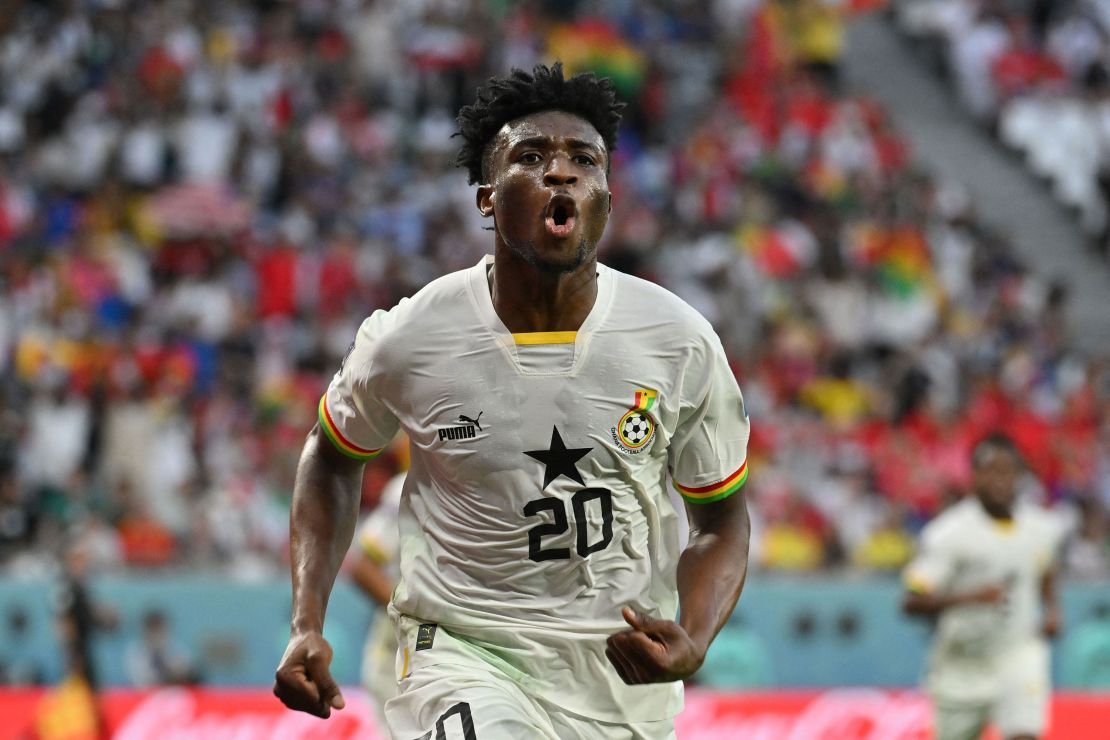
‘Keep on running’
Ghana’s journey in Qatar ultimately ended prematurely as a 2-0 defeat to Uruguay condemned them to a group-stage exit.
The Black Stars were looking to exact revenge against the South American side that had broken their hearts at the 2010 World Cup in South Africa, where Boateng and his teammates were moments away from becoming the first African side in history to reach the tournament’s last four.
Just four years earlier, Ghana had competed at its first ever World Cup, in Germany, with Boateng again featuring. It is because of such experiences that the 39-year-old holds no regrets.
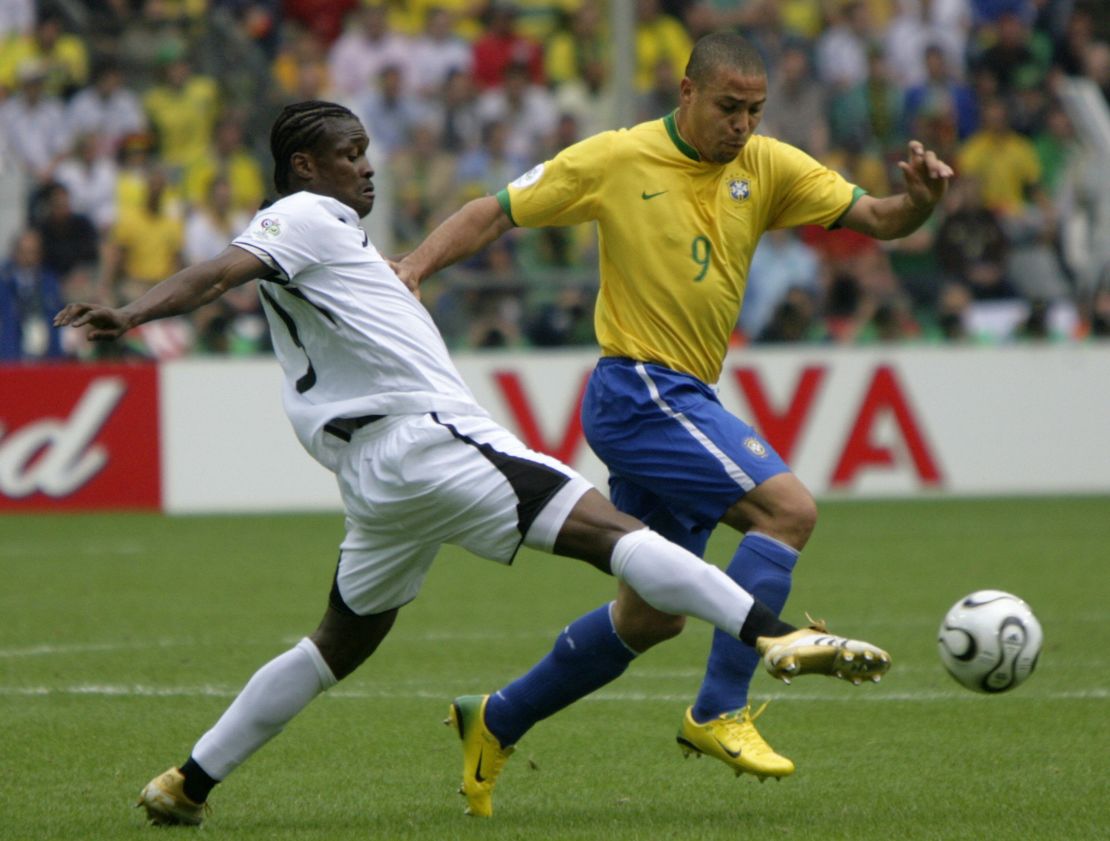
“It’s a dream come true for me and I cannot ask [for] anything more than that,” he said. “Playing the World Cup is everything to me, as a football player.
“It means the whole world is watching you … there will be somebody that’s never seen me play before so I have to give that person something to take home, I have to give my best.
“Sometimes you’ve been doing a lot of things that are not working for you, but it doesn’t mean that you have to stop – you have to keep on going.”
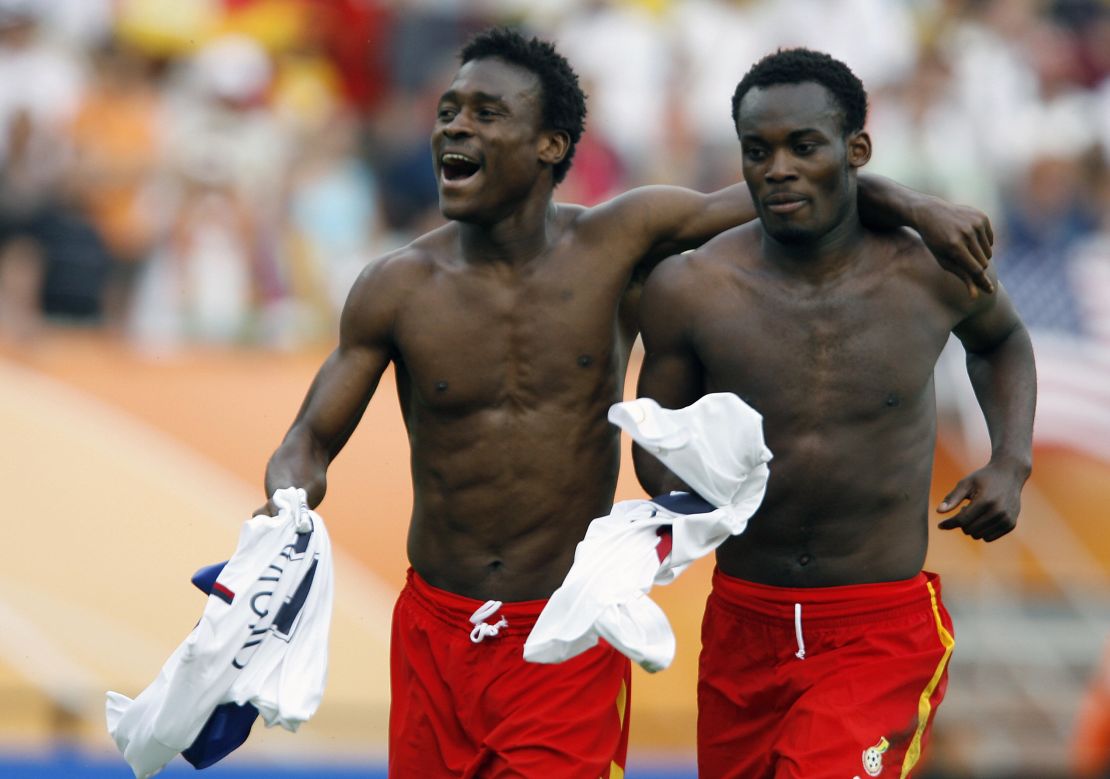
That mantra lay at the heart of Boateng’s playing career, and it is a message he repeats to aspiring student-athletes at the academy.
“In my career a lot of people tell me, ‘no, no, no,’ and I don’t listen to them. The moment when you listen to the word ‘no,’ the whole career will shut down,” he said.
“Sometimes some things you don’t expect in life will come to your way – you don’t have to stop there … you have to keep on running with it.”

